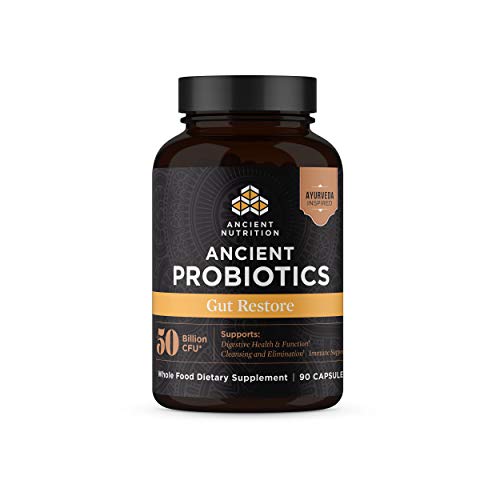
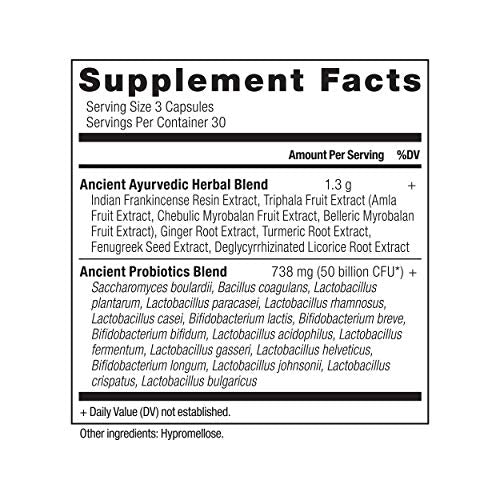
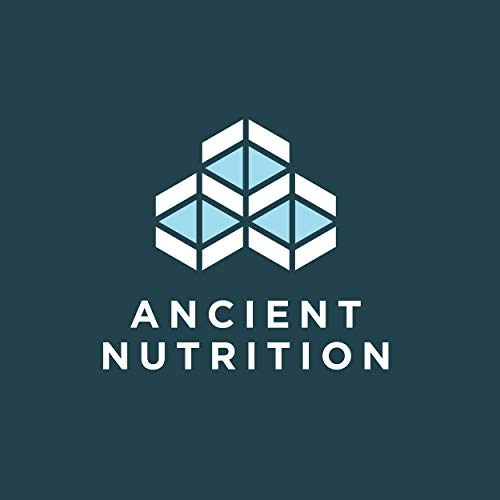
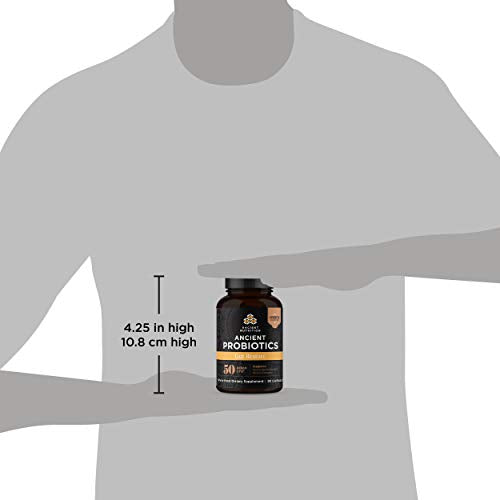
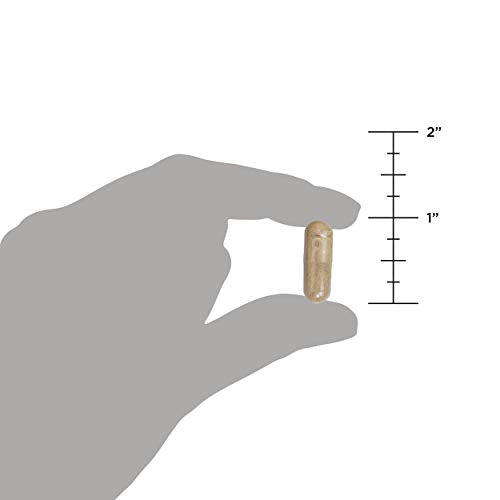
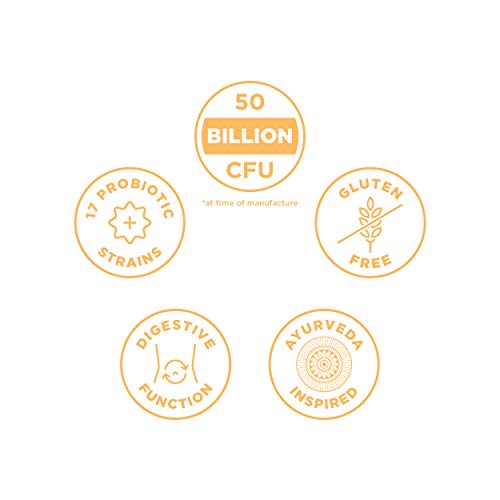
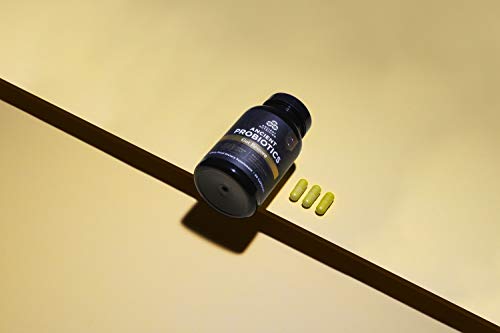
Ancient Nutrition Probiotic - 50 Billion CFUs for Digestive Support, Gluten & Soy Free - 90ct


Lactobacillus Plantarum
Low RiskLactobacillus plantarum is a type of beneficial bacteria commonly found in fermented foods. It functions primarily as a probiotic, promoting gut health by maintaining a balanced microbiome and supporting digestion. This ingredient is often included in dietary supplements and functional foods for its health benefits.
Sustai Insights
Lactobacillus plantarum provides functional benefits as a probiotic, contributing to digestive health and gut flora balance. It is not associated with significant health risks, as concerns related to carcinogenicity, allergies, and reproductive toxicity are low. Environmentally, it poses minimal risks. Regulatory bodies have not issued any warnings or restrictions for its use, indicating a low overall risk. Safe usage practices include following recommended dosages, and alternatives like other probiotic strains may be considered. Overall, this ingredient is assessed as low risk.
Lactobacillus Rhamnosus
Low RiskLactobacillus rhamnosus is a type of beneficial bacteria commonly found in fermented foods and probiotics. It is predominantly used for its probiotic properties, supporting gut health and contributing to the balance of intestinal microflora in various health products.
Sustai Insights
Lactobacillus rhamnosus offers functional benefits as a probiotic, promoting digestive health and potentially enhancing immune function. It is considered safe with low concerns for carcinogenicity, allergies, and reproductive toxicity. Regulatory bodies have not imposed restrictions on its use. While not known for environmental hazards, further research on its ecological impact is warranted. Overall, it poses a low risk, and safe usage practices include adhering to recommended dosages. Alternatives include other probiotic strains like Lactobacillus acidophilus.
Lactobacillus Casei
Low RiskLactobacillus casei is a type of probiotic bacteria commonly found in fermented foods and dietary supplements. It is primarily used to promote gut health and support the immune system by maintaining a balanced microbiota in the gastrointestinal tract.
Sustai Insights
Lactobacillus casei offers functional benefits as a probiotic, enhancing digestive health and potentially improving immune responses. It is generally regarded as safe, with low concerns regarding carcinogenicity, allergies, or reproductive toxicity. Environmental risks are minimal, and it is not subject to specific regulatory restrictions. Overall, it is assessed as low risk, and safe usage is suggested, although alternatives like Lactobacillus acidophilus may be considered for similar benefits.
Lactobacillus Acidophilus
Low RiskLactobacillus acidophilus is a probiotic bacterium commonly found in the human gut and fermented foods. It plays a key role in digestion and gut health, often used in dietary supplements and functional foods to promote beneficial gut flora.
Sustai Insights
Lactobacillus acidophilus offers functional benefits by supporting digestive health and balancing intestinal microbiota. It is generally recognized as safe with low health risks, including negligible concerns for cancer, allergies, and reproductive toxicity. Environmentally, it poses minimal risk. Regulatory bodies do not impose restrictions on its use. Overall, it holds a low risk profile, making it a favorable ingredient in health products.
Zingiber Officinale (Ginger) Root Extract
Low RiskZingiber officinale (ginger) root extract is derived from the ginger plant, widely recognized for its use in culinary applications and traditional medicine. It serves various functions in products, including flavor enhancement and potential therapeutic benefits due to its bioactive compounds.
Sustai Insights
Ginger root extract offers functional benefits such as flavoring and possible anti-inflammatory properties. It is sustainably sourced and biodegradable. Health risks are low, with minimal concerns regarding carcinogenicity, allergies, or reproductive toxicity. Environmental risks appear low, with no significant pollutants. Regulatory status is favorable, with no major warnings. Overall, the risk level associated with ginger root extract is low, making it a suitable ingredient in various applications.
Bifidobacterium Longum
Low RiskBifidobacterium longum is a type of beneficial bacteria commonly found in the human gut. It plays a key role in maintaining gut health, supporting digestion, and enhancing the immune response. Its primary function in products is often as a probiotic ingredient, promoting a balanced microbiome.
Sustai Insights
Bifidobacterium longum offers functional benefits as a probiotic, contributing to digestive health and immune support. It is considered low risk for health concerns such as carcinogenicity, allergies, or reproductive toxicity. Environmentally, it poses minimal risks, with no significant pollutant or bioaccumulation potential. Regulatory bodies do not impose restrictions on its use, indicating a favorable status. Overall, this ingredient can be safely used in products, making it a low-risk option for consumers.
Curcuma Longa (Turmeric) Root Extract
Low RiskCurcuma longa (turmeric) root extract is an extract from the turmeric plant, commonly used for its coloring and potential health benefits in various products. It is recognized for its active compound, curcumin, which is studied for its anti-inflammatory and antioxidant properties.
Sustai Insights
Curcuma longa (turmeric) root extract is valued for its functional benefits, including potential anti-inflammatory and antioxidant effects, contributing positively to formulations. It is biodegradable and often sustainably sourced. Health risks are low, with no significant concerns regarding carcinogenicity or irritation. Environmental risks are minimal, with no evidence of bioaccumulation. Regulatory bodies have not placed restrictions on its use, supporting a low-risk assessment overall. Safe usage practices should be adhered to, but there are few concerns for sensitive populations. Alternatives like ginger extract may provide similar benefits.
Hydroxymethylcellulose
Low RiskHydroxymethylcellulose is a synthetic polymer derived from cellulose, primarily used as a thickening agent, emulsifier, and film-forming agent in various personal care and cosmetic products. It enhances texture, stability, and moisture retention, making it suitable for use in creams, lotions, and gels.
Sustai Insights
Hydroxymethylcellulose serves effectively as a thickener and stabilizer, contributing to product texture and moisture retention. It is considered low risk for health concerns such as carcinogenicity, allergies, and reproductive toxicity. Environmentally, it is not classified as a pollutant or bioaccumulative, aligning with regulatory standards in multiple regions. Overall, its risk level is assessed as low, with no significant adverse effects reported. Safe usage practices should be followed, and while alternatives exist, hydroxymethylcellulose remains a suitable choice in formulations.
Lactobacillus Plantarum
Low RiskLactobacillus plantarum is a type of beneficial bacteria commonly found in fermented foods. It functions primarily as a probiotic, promoting gut health by maintaining a balanced microbiome and supporting digestion. This ingredient is often included in dietary supplements and functional foods for its health benefits.
Sustai Insights
Lactobacillus plantarum provides functional benefits as a probiotic, contributing to digestive health and gut flora balance. It is not associated with significant health risks, as concerns related to carcinogenicity, allergies, and reproductive toxicity are low. Environmentally, it poses minimal risks. Regulatory bodies have not issued any warnings or restrictions for its use, indicating a low overall risk. Safe usage practices include following recommended dosages, and alternatives like other probiotic strains may be considered. Overall, this ingredient is assessed as low risk.
Lactobacillus Rhamnosus
Low RiskLactobacillus rhamnosus is a type of beneficial bacteria commonly found in fermented foods and probiotics. It is predominantly used for its probiotic properties, supporting gut health and contributing to the balance of intestinal microflora in various health products.
Sustai Insights
Lactobacillus rhamnosus offers functional benefits as a probiotic, promoting digestive health and potentially enhancing immune function. It is considered safe with low concerns for carcinogenicity, allergies, and reproductive toxicity. Regulatory bodies have not imposed restrictions on its use. While not known for environmental hazards, further research on its ecological impact is warranted. Overall, it poses a low risk, and safe usage practices include adhering to recommended dosages. Alternatives include other probiotic strains like Lactobacillus acidophilus.
Lactobacillus Casei
Low RiskLactobacillus casei is a type of probiotic bacteria commonly found in fermented foods and dietary supplements. It is primarily used to promote gut health and support the immune system by maintaining a balanced microbiota in the gastrointestinal tract.
Sustai Insights
Lactobacillus casei offers functional benefits as a probiotic, enhancing digestive health and potentially improving immune responses. It is generally regarded as safe, with low concerns regarding carcinogenicity, allergies, or reproductive toxicity. Environmental risks are minimal, and it is not subject to specific regulatory restrictions. Overall, it is assessed as low risk, and safe usage is suggested, although alternatives like Lactobacillus acidophilus may be considered for similar benefits.
Lactobacillus Acidophilus
Low RiskLactobacillus acidophilus is a probiotic bacterium commonly found in the human gut and fermented foods. It plays a key role in digestion and gut health, often used in dietary supplements and functional foods to promote beneficial gut flora.
Sustai Insights
Lactobacillus acidophilus offers functional benefits by supporting digestive health and balancing intestinal microbiota. It is generally recognized as safe with low health risks, including negligible concerns for cancer, allergies, and reproductive toxicity. Environmentally, it poses minimal risk. Regulatory bodies do not impose restrictions on its use. Overall, it holds a low risk profile, making it a favorable ingredient in health products.
Zingiber Officinale (Ginger) Root Extract
Low RiskZingiber officinale (ginger) root extract is derived from the ginger plant, widely recognized for its use in culinary applications and traditional medicine. It serves various functions in products, including flavor enhancement and potential therapeutic benefits due to its bioactive compounds.
Sustai Insights
Ginger root extract offers functional benefits such as flavoring and possible anti-inflammatory properties. It is sustainably sourced and biodegradable. Health risks are low, with minimal concerns regarding carcinogenicity, allergies, or reproductive toxicity. Environmental risks appear low, with no significant pollutants. Regulatory status is favorable, with no major warnings. Overall, the risk level associated with ginger root extract is low, making it a suitable ingredient in various applications.
Bifidobacterium Longum
Low RiskBifidobacterium longum is a type of beneficial bacteria commonly found in the human gut. It plays a key role in maintaining gut health, supporting digestion, and enhancing the immune response. Its primary function in products is often as a probiotic ingredient, promoting a balanced microbiome.
Sustai Insights
Bifidobacterium longum offers functional benefits as a probiotic, contributing to digestive health and immune support. It is considered low risk for health concerns such as carcinogenicity, allergies, or reproductive toxicity. Environmentally, it poses minimal risks, with no significant pollutant or bioaccumulation potential. Regulatory bodies do not impose restrictions on its use, indicating a favorable status. Overall, this ingredient can be safely used in products, making it a low-risk option for consumers.
Curcuma Longa (Turmeric) Root Extract
Low RiskCurcuma longa (turmeric) root extract is an extract from the turmeric plant, commonly used for its coloring and potential health benefits in various products. It is recognized for its active compound, curcumin, which is studied for its anti-inflammatory and antioxidant properties.
Sustai Insights
Curcuma longa (turmeric) root extract is valued for its functional benefits, including potential anti-inflammatory and antioxidant effects, contributing positively to formulations. It is biodegradable and often sustainably sourced. Health risks are low, with no significant concerns regarding carcinogenicity or irritation. Environmental risks are minimal, with no evidence of bioaccumulation. Regulatory bodies have not placed restrictions on its use, supporting a low-risk assessment overall. Safe usage practices should be adhered to, but there are few concerns for sensitive populations. Alternatives like ginger extract may provide similar benefits.
Hydroxymethylcellulose
Low RiskHydroxymethylcellulose is a synthetic polymer derived from cellulose, primarily used as a thickening agent, emulsifier, and film-forming agent in various personal care and cosmetic products. It enhances texture, stability, and moisture retention, making it suitable for use in creams, lotions, and gels.
Sustai Insights
Hydroxymethylcellulose serves effectively as a thickener and stabilizer, contributing to product texture and moisture retention. It is considered low risk for health concerns such as carcinogenicity, allergies, and reproductive toxicity. Environmentally, it is not classified as a pollutant or bioaccumulative, aligning with regulatory standards in multiple regions. Overall, its risk level is assessed as low, with no significant adverse effects reported. Safe usage practices should be followed, and while alternatives exist, hydroxymethylcellulose remains a suitable choice in formulations.
Experience the power of Ancient Nutrition Probiotics, Gut Restore! Formulated with 50 billion CFUs from 17 unique probiotic strains, this supplement nurtures a balanced gut and enhances overall digestive health.
- Supports Digestive Health: Designed to promote the growth of good bacteria, aiding in digestion and reducing discomfort from gas and bloating.
- Gluten and Soy Free: Perfect for those with dietary restrictions, ensuring a clean and safe probiotic choice.
- No Refrigeration Needed: Soil-based organisms are resilient, allowing these probiotics to survive without cold storage, making them ideal for on-the-go lifestyles.
- Natural Ingredients: Enriched with ginger and fenugreek, this blend harnesses the power of superfoods to support gut function naturally.
- Customer Satisfaction Guaranteed: Ancient Nutrition promises a money-back guarantee to ensure you feel confident in your purchase, promoting trust and transparency.
Prioritize your health with a probiotic that aligns with your wellness journey!
Subscribe & Save with Sustai
- Best Price Guarantee: Always enjoy the lowest prices on sustainable home essentials.
- No Surprises: We’ll notify you before shipping. No hidden fees, ever.
- You’re in Charge: Change, pause, or cancel your subscription anytime with ease.
- Eco-Friendly Deliveries: Our grouped shipments mean less packaging and lower emissions.
Join us on a sustainable journey. Special offers for a limited time! Prices and promotions may change.
Recommended Products
Experience the power of Ancient Nutrition Probiotics, Gut Restore! Formulated with 50 billion CFUs from 17 unique probiotic strains, this supplement nurtures a balanced gut and enhances overall digestive health.
- Supports Digestive Health: Designed to promote the growth of good bacteria, aiding in digestion and reducing discomfort from gas and bloating.
- Gluten and Soy Free: Perfect for those with dietary restrictions, ensuring a clean and safe probiotic choice.
- No Refrigeration Needed: Soil-based organisms are resilient, allowing these probiotics to survive without cold storage, making them ideal for on-the-go lifestyles.
- Natural Ingredients: Enriched with ginger and fenugreek, this blend harnesses the power of superfoods to support gut function naturally.
- Customer Satisfaction Guaranteed: Ancient Nutrition promises a money-back guarantee to ensure you feel confident in your purchase, promoting trust and transparency.
Prioritize your health with a probiotic that aligns with your wellness journey!

You can have at most 2 Sustainable Steals products in your cart
Customer Reviews
Customers’ View
Customers appreciate the efficacy and quality of this probiotic supplement, noting its robust formulation with 50 billion CFUs from 17 probiotic strains. Many users report positive experiences, stating that the supplement effectively supports their digestive health, with one customer mentioning, "I like that taking it once a day seems to keep everything working well." The allergen-friendly nature of the product also resonates with health-conscious consumers, as it is gluten-free and soy-free. However, some customers have expressed mixed feelings regarding gastrointestinal discomfort, with a few experiencing bloating. Overall, customers find this product to be a reliable choice for maintaining gut health, making it a thoughtful addition to their wellness routines.
AI-generated from the text of customer reviewsThis product has no reviews yet.




